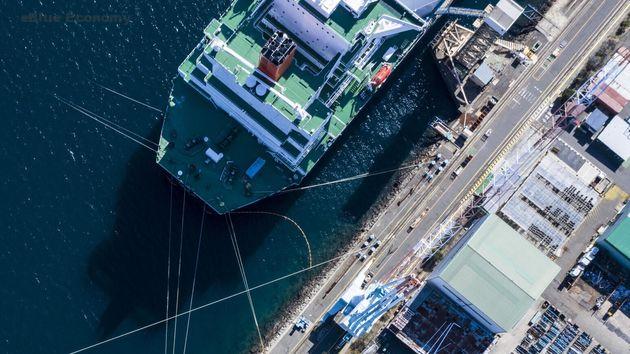Signatories of the Call to Action for Shipping Decarbonization urge world leaders to align shipping with the Paris Agreement temperature goal. The private sector is already taking important steps to decarbonize global supply chains.
Now governments must deliver the policies that will supercharge the transition and make zero-emission shipping the default choice by 2030.
Full decarbonization of international shipping is urgent and achievable. This is the clear message from more than 150 industry leaders and organizations representing the entire maritime value chain, including shipping, cargo, energy, finance, sports, and infrastructure. In conjunction with the UN General Assembly and ahead of critical climate negotiations at COP26 in Glasgow this November, they call on governments to work together with industry to deliver the policies and investments needed to reach critical tipping points in decarbonizing global supply chains and the global economy.
Signatories to the Call to Action for Shipping Decarbonization include some of the world’s largest actors in global trade: Anglo American, A.P. Moller – Maersk, BHP, BP, BW LPG, Cargill Ocean Transportation, Carnival Corporation, Citi, Daewoo Shipbuilding & Marine Engineering, ENGIE, Euronav, GasLog, Hapag-Lloyd, Lloyd’s Register, Mitsui O.S.K. Lines, MSC Mediterranean Shipping Company, Olympic Shipping and Management, Panama Canal Authority, Port of Rotterdam, Rio Tinto, Shell, Trafigura, Ultranav, Volvo, and Yara.
Ships transport around 80% of global trade and account for about 3% of global greenhouse gas (GHG) emissions. In 2018, the UN’s International Maritime Organization (IMO) adopted an initial GHG strategy. It aims to reduce international shipping’s total annual GHG emissions by at least 50% of 2008 levels by 2050. The strategy is set to be revised in 2023.
The Port of Rotterdam is committed to achieving net-zero CO2 emissions in 2050 whilst having a positive impact on the economy, society and planet. In line with these objectives, we actively promote shipping decarbonization. The challenges associated with this transition are huge, and we highly appreciate working together with like-minded partners















